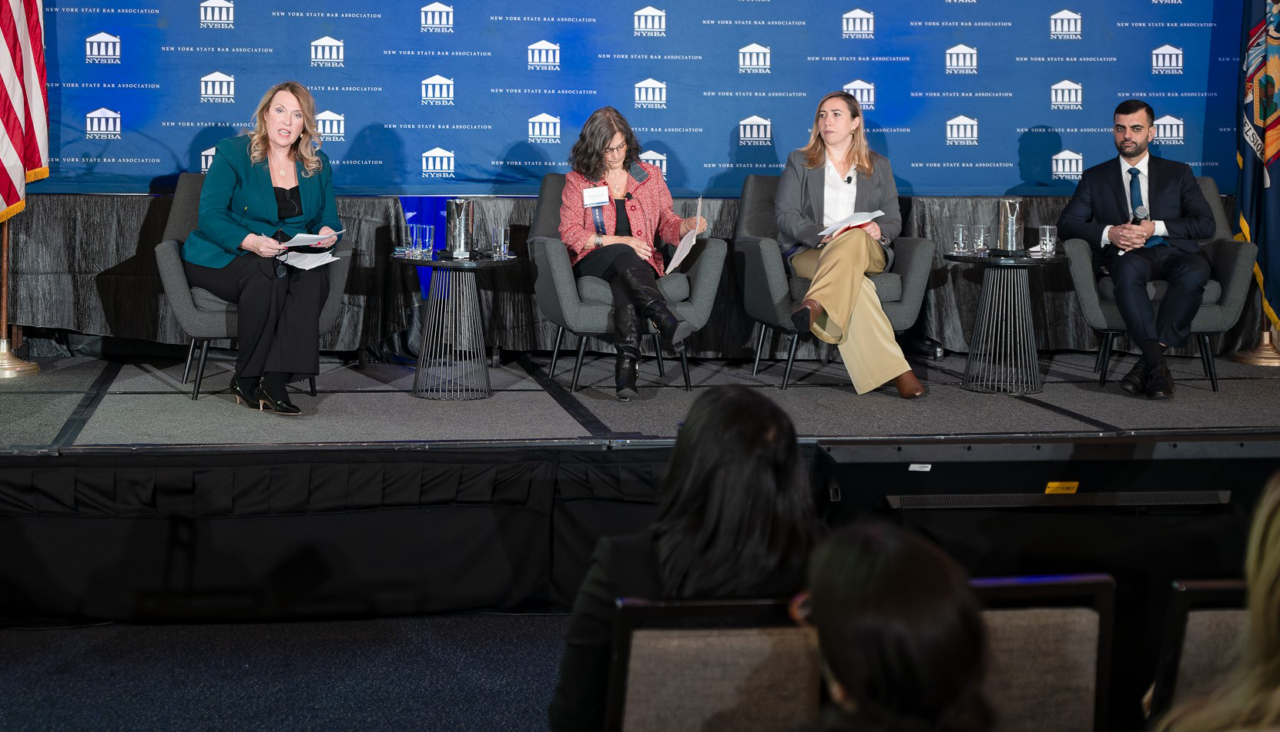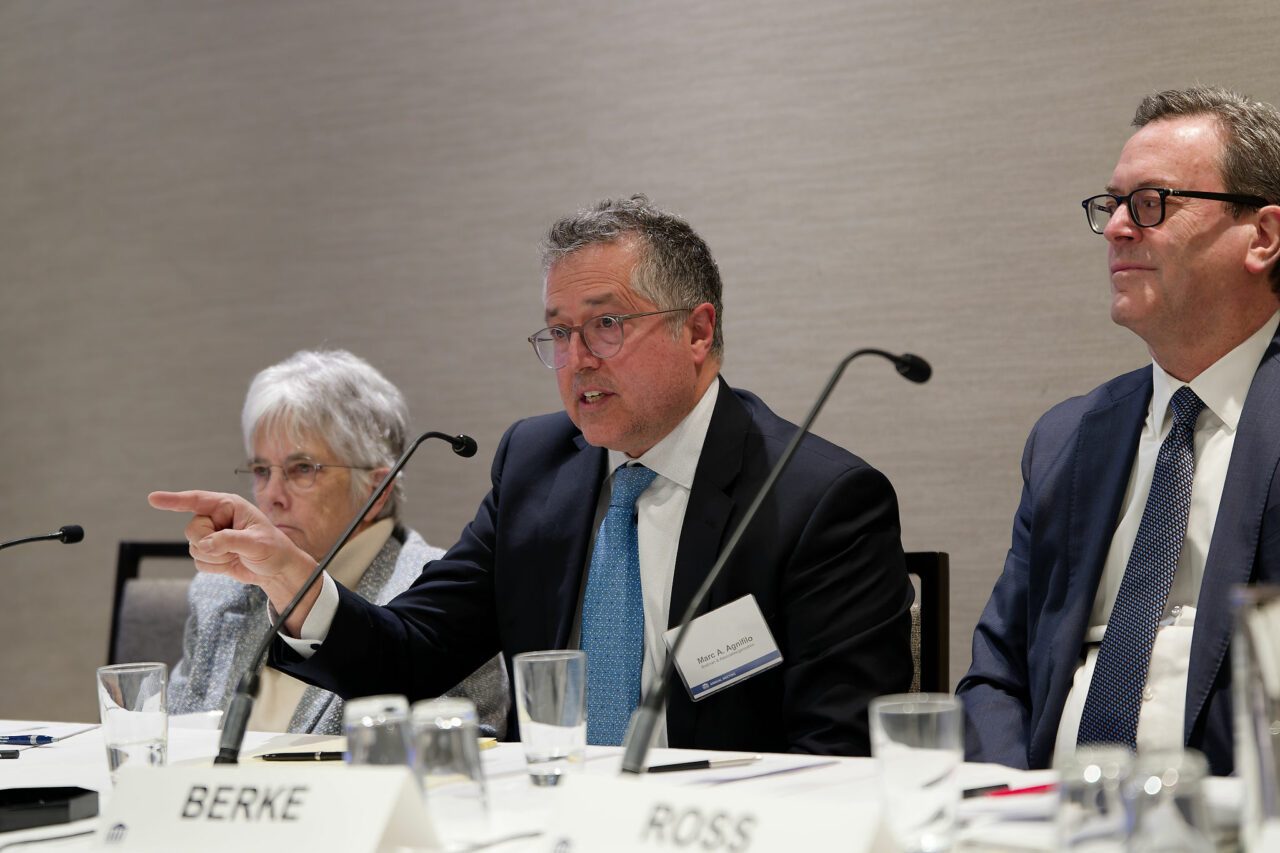NYSBA CLE Program To Discuss Sex Trafficking Allegations Against Sean Combs and Abercrombie and Fitch CEO, and Resources for Sex Trafficking Survivors
12.3.2024

NYSBA is presenting a CLE Program on Monday, Dec. 9, 2024, from 12:30 p.m. to 2:00 p.m. on “Sex Trafficking in New York: How to Prosecute the Offenders and Aid the Survivors.”
There are many federal and state criminal laws that are employed to prosecute sex traffickers. On the federal level, these include laws prohibiting sex trafficking, racketeering, conspiracy, and transporting individuals across state lines for sex trafficking purposes. An example of how these charges can be utilized in sex trafficking cases is the indictment against Sean Combs being prosecuted in federal court in the Southern District of New York.
In that case, prosecutors have alleged that Combs created an illegal enterprise to facilitate sex trafficking involving forced “Freak Offs” amongst victims for Combs’ personal pleasure, while protecting Combs from legal and reputational harm.[1] In another pending case, the former CEO of Abercrombie & Fitch Co., and two others, are charged in federal court in the Eastern District of New York with sex trafficking and engaging in interstate prostitution for allegedly recruiting and paying dozens of men to engage in commercial sex acts with them and others, often promising modeling opportunities with Abercrombie.[2]
There have been other high profile sex offense cases over the last several years, including the charges brought against Harvey Weinstein. The notoriety of these cases has undoubtedly led to more victims of sexual violence speaking out against their abusers.
On Nov. 1, 2007, the New York Anti-Trafficking Statute became law in New York State. This was a watershed moment in New York’s efforts to address the critical problem of human trafficking taking place in many parts of our state and country, a problem that is often “hiding in plain sight.” It brought about significant changes in the Penal Law, making sex and labor trafficking a crime,[3] as well as to the Social Services Law, providing increased assistance to survivors of human trafficking to enable them to break away from their trafficker.
Today there are many resources available to aid survivors of human trafficking, both on the state and federal level. New York, in particular, is at the forefront in this regard. For example, New York law provides a procedure whereby qualified individuals can receive “certification as a victim of a severe form of trafficking,”[4] thereby allowing them access to legal and social services to enable them to escape their trafficker.
In addition, New York allows human trafficking survivors to seek a vacatur of criminal convictions that arose as a result of their trafficked status,[5] and to seek civil remedies against their trafficker in Civil Court.[6] At the federal level, survivors of human trafficking who qualify may be eligible to receive a temporary immigration authorization, such as a T Visa[7] or U Visa,[8] that will allow them to remain in the United States, receive certain benefits, authorize them to be legally employed, and ultimately lead to lawful permanent residency or citizenship.
People who are being sex trafficked often are not recognized as such, or made aware of the resources that exist to help them break away from their oppressor. This is where government and the legal profession, and others, can play a role. Those who may have incidental contact with people being trafficked, such as medical providers, prosecutors, or attorneys working with clients on immigration, domestic violence, or criminal matters, need to be alert for signs that a person may be entangled in human trafficking.
These individuals are among the most vulnerable people in our society, and lawyers are in a unique position to help them, and indeed have a special responsibility to do so. It is essential that we educate ourselves to recognize the signs that indicate someone is being trafficked, and how to put them in touch with the resources that exist to help them.
NYSBA has been holding CLE programs on Human Trafficking over the last several years in connection with its membership on the New York State Interagency Task Force on Human Trafficking.[9] The Task Force, established in 2007 as part of the New York Anti-Trafficking Statute passed that year, coordinates and supports New York’s interagency activities regarding human trafficking.
We have assembled a panel of three outstanding attorneys with years of experience prosecuting sex traffickers and aiding survivors, who will discuss laws and services that exist in New York State and on the federal level to provide a path to freedom for those forced into human trafficking. They are:
- Margaret Gandy – founding partner, Alcalaw; former assistant U.S. Attorney, Eastern District of New York; former assistant district attorney, New York County District Attorney’s Office.
- Julina Guo – counsel/director of human trafficking prevention, New York State Division of Criminal Justice Services; former assistant counsel/bureau chief, Juvenile Justice Unit at the New York State Office of Children and Family Services; co-chair, New York State Interagency Task Force on Human Trafficking.
- Justin McNabney – executive assistant district attorney and chief of the Special Victims Division, New York County District Attorney’s Office.
This program is part of NYSBA’s efforts to end human trafficking in New York and throughout the country. Click this link for more information and to register: CLE credit will be provided, and it is free-of-charge to all NYSBA members and attorneys working in government, legal aid, public interest, and not-for-profit positions. For all others, there is a nominal $25 fee. We hope you will be able to attend and learn how you can make a difference.
Margaret J. Finerty is a partner at Getnick Law. Her practice includes all areas of the firm’s anti-fraud litigation and business integrity matters. She focuses on federal and state false claims act qui tam cases, as well as IRS and SEC whistleblower matters. She coordinates the firm’s IRS whistleblower practice, which recently achieved an historic $263 million tax fraud recovery with Getnick Law’s client sharing a 30% award with two other whistleblowers. She previously served as a judge of the Criminal Court of the City of New York and, before that, she worked in the Manhattan District Attorney’s Office under the leadership of District Attorney Robert M. Morgenthau. She serves as NYSBA’s statutory representative to the New York State Interagency Task Force on Human Trafficking.
Endnotes
[1] United States v. Combs, 24 Cr. 542 (S.D.N.Y.), available at https://www.justice.gov/usao-sdny/media/1368556/dl.
[2] United States v. Jeffries, Smith and Jacobson, 24 Cr. 423 (E.D.N.Y.), available at https://www.justice.gov/usao-edny/media/1374206/dl?inline
[3] The statute added as crimes Penal Law § 135.35, Labor trafficking and Penal Law § 230.34, Sex trafficking. In 2018, Penal Law § 230.34-a was passed, establishing the crime of Sex trafficking of a child.
[4] NY SOC SERV § 483-cc.
[5] See S. 674/A. 459, known as the START Act (Survivors of Trafficking Attaining Relief Together), signed into law on November 16, 2021. The bill expands to other offenses New York’s prior law that provided vacatur of convictions for prostitution-related offenses resulting from human trafficking, for example, by allowing for vacatur of convictions arising from labor trafficking, and allows for motions to be made confidentially; https://www.nysenate.gov/legislation/bills/2021/S674.
[6] See S.672/A. 3186, signed into law on July 28, 2021. The bill expands upon the prior law by creating a 15-year statute of limitations and allowing for compensatory and punitive damages, injunctive and other appropriate relief, and reasonable attorneys’ fees; https://www.nysenate.gov/legislation/bills/2021/s672.
[7] See INA 101(a)(15)(T); 8 USC 1101(a)(15)(T).
[8] See INA 101(a)(15)(U); 8 USC 1101(a)(15)(U).
[9] NY SOC SERV § 483-ee (a)(15) allows for a member of the Task Force to be appointed on the recommendation of the president of the New York State Bar Association.







